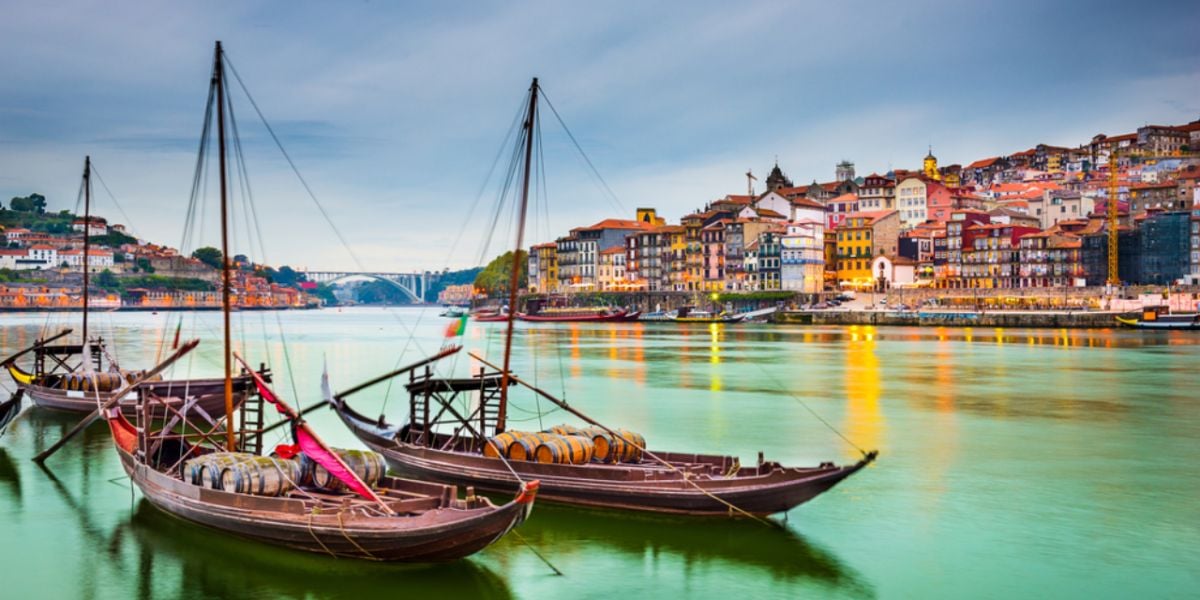
If you are planning to move to Portugal, it is important to get to know your transportation options throughout the country. Portugal has a modern and well-developed highway and road network and is also serviced by a decent bus network, though the rail is seriously lacking when compared to its southern European counterparts.
Air travel in Portugal
Portugal is well connected to Europe and the world via its airports. The largest, Humberto Delgado Airport in Lisbon, services a wide range of domestic and international flights daily. Smaller airports can also be found in the likes of Faro, Madeira and the Azores, while Francisco Sá Carneiro Airport in Porto, though not as busy as Lisbon, also services an ever-growing number of international destinations.
As Lisbon Airport is known for its chaotic organization and outdated facilities—something that is getting more and more noticeable as traffic grows—a new air hub is in the pipeline for the capital. Although talks of a new airport have been around for well over a decade, the government has finally set a date for its inauguration: 2037!
Inter-city bus travel in Portugal
Traveling by coach for long-distance journeys in Portugal, or buses for intercity travel, is an easy and affordable way to get around if you prefer not to drive. Portugal's rail network is limited, so for some destinations, coach travel is the only way to get to certain areas via public transportation.
Tickets can be booked online, and fares are usually cheap if booked in advance. For example, a coach between Lisbon and Porto takes approximately three and a half hours and can cost anywhere between €5.00 and €20.00. Popular bus companies running nationwide include Rede Expressos, Flixbus and Gipsyy.
Train travel in Portugal
Trains in Portugal can be quite scenic and a very pleasant way to travel between major cities. However, as mentioned above, the rail network is limited, with smaller towns having little to no access. Plus, the system is often plagued with structural problems, delays and staff strikes. Plus, though visitors from other parts of Europe may find it reasonably priced, it is nonetheless much more expensive than taking the bus.
Portuguese trains are run by CP - Comboios de Portugal, and though not state-of-the-art material, the vehicles are usually clean and comfortable.
There are several types of Comboios trains:
- R trains are regional trains that are slower and stop very frequently;
- IR trains are interregional trains that usually skip most of the small train stations;
- IC trains are intercidades trains (express trains) that only stop in big cities;
- Alfa Pendular, the only high-speed service in the entire network.
Luckily, the past couple of government cabinets seem dedicated to modernizing the local railway system. For now, a brand-new high-speed train is in the project for the route between Porto and Lisbon. The line is expected to be fully operational by 2029, allowing passengers to travel between the country's two biggest cities in just 1h15 (vs. the current 2h50).
Unbelievably, there is only one direct train between Portugal and Spain. That is due to the fact that the types of tracks are different in both countries, presenting a logistical nightmare every time a train needs to cross the border. As such, the Celta—connecting the cities of Porto and Vigo—stands as the only direct service between the two neighboring nations. Currently, there are plans to establish a faster route between Lisbon and Madrid starting in 2026, though it will take a staggering 6h30 due to the need to change trains (because of the tracks issue) halfway through. For now, if you want to travel between the two Iberian capitals, you'll still have to endure a 10-hour trip across 3 different trains.
Driving in Portugal
Portugal has a modern road infrastructure, with an easy-to-access highway and road system. Driving in Portugal is done on the right side of the road, and speed limits are 50 kph in metropolitan areas, 90 kph on secondary roads and 120 kph on highways.
You must be at least 18 in order to drive in Portugal, while the age limit to rent a car in the country, depending on the company, ranges between 21 and 25. Drivers younger than 25 may have to pay an additional premium when hiring a car and have a valid driver's license for at least 3 years. If you are in the country for less than six months, you can drive or rent a car using your local license or an International Driving Permit, depending on the country you come from.
In big cities, you can also rent a motorcycle or a scooter. These are usually available from 30€ to 60€ per day.
Bikes in Portugal
Riding a bike is quite popular in Portugal—even if the dedicated infrastructure isn't quite there yet. Though the biggest Portuguese cities have been implementing cycling paths in the past few years (aside from Lisbon, whose local authorities have been actively removing them), cycling conditions may not be perfect due to the large number of cobbled streets and the restricted number of pathways/bike lanes.
We do our best to provide accurate and up to date information. However, if you have noticed any inaccuracies in this article, please let us know in the comments section below.








